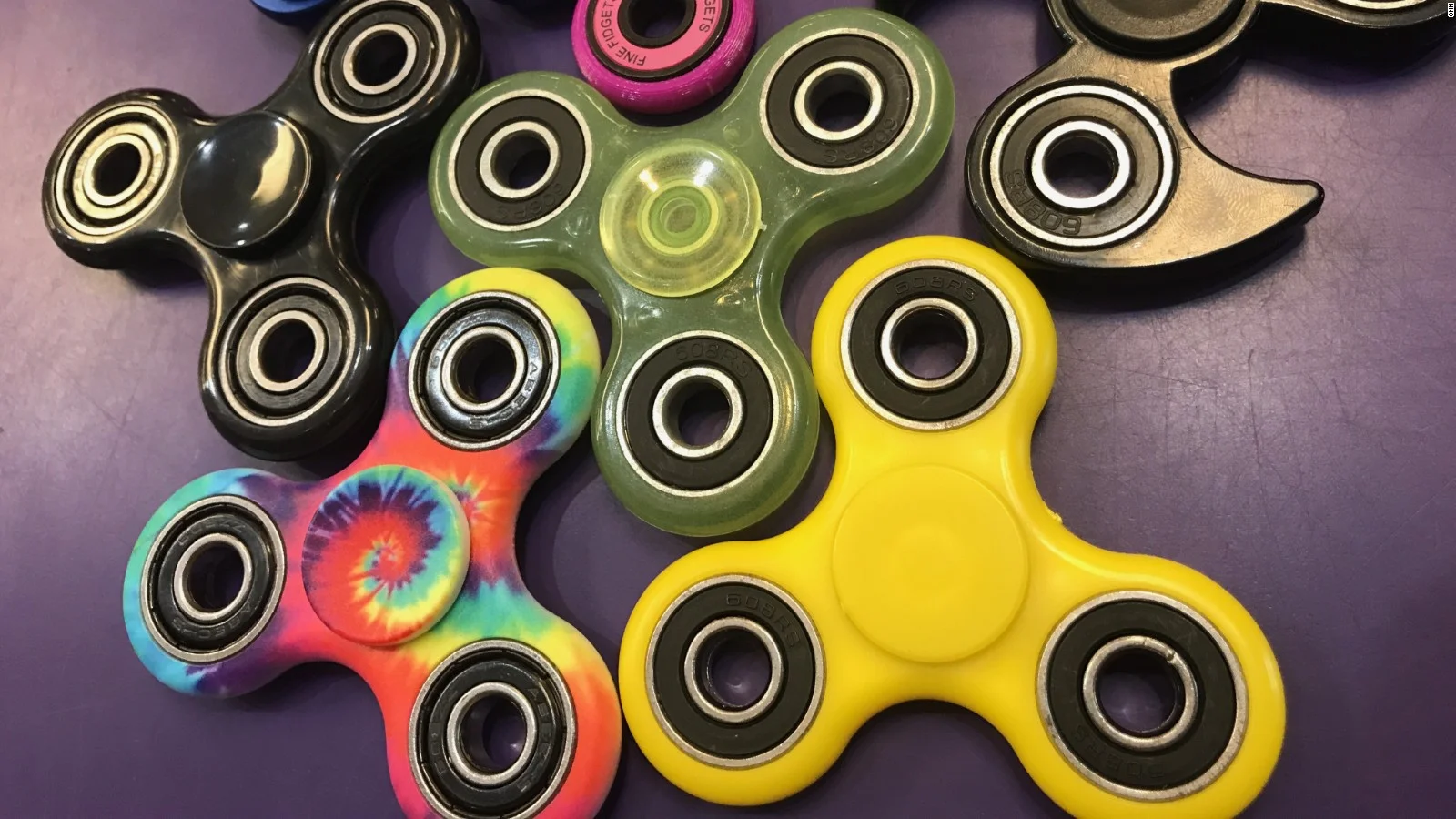Ladies and gentlemen!! If I may have your attention please! We have our latest craze. Introducing...the fidget spinner!!!
Okay, okay this is actually not such new news, unless you have been removed from the outside world for the last several months. Advertised as an aid to help those who lack focus to improve their concentration, this lends itself to those who have ADHD (or ADD). However, some might say this "hot" new item is having the reverse affect. In fact, some schools have gone as far as to ban the fidget spinner from their classroom. There are mixed reviews of this tool/toy. As such, it begs the question, to fidget or not to fidget?
In working with oodles of children over the years, one of the things I often hear from parents is a lack of focus or concentration, often stated as ignoring behavior. Not following directions. Having to repeat yourself 4, 5, and even 6 times before your child springs into action. Is this lack of attention? Perhaps. Let's also consider the audience, a child. A primarily self-indulgent person who is more interested in what they want more than what others want. And you know what, that is absolutely normal. Yep, children aren't born with these skills—they are instead born with the potential to develop them. A child often lacks the maturity to delay immediate satisfaction. Heck even for adults this can be a struggle at times. One example of this struggle to demonstrate restraint is illustrated in the "Marshmallow Test". First introduced in the late 1960s by Walter Mischel. Mischel developed the test as a means of exploring self control, something he himself dealt with personally through an addiction to smoking. This tasty test was aimed at assessing self control. All this correlates to what we now call executive function.
Scientists refer to this as a set of skills that relies on three types of brain functions: working memory, mental flexibility, and self-control. So how does this work? Genes provide the blueprint, but it is experience that facilitates the development of these skills. So how do you develop these skills? This is a bit like opening pandora's box, as we are talking about the development of the human brain which is incredibly vast. A resource to help with this, comes from the research of Harvard University's, Center on the Developing Child. The Center was established in 2006 by director Jack P. Shonkoff, M.D. Their founding mission was to generate, translate, and apply scientific knowledge that would close the gap between what we know and what we do to improve the lives of children facing adversity. Here are some of the skill building strategies they came up with, broken down by age group.
So how does this relate back to the fidget spinner? Well, we are talking about focus and attention. Looking at the statistics, the American Psychiatric Association states in the Diagnostic and Statistical Manual of Mental Disorders (DSM-5) that 5% of children have ADHD. However, other studies in the US have estimated higher rates in community samples. Recent surveys of parents show that approximately 11% of children 4-17 years of age (6.4 million) have ever been diagnosed with ADHD as of 2011. The percent of children estimated to have ADHD has changed over time and can vary by how it is measured. Per these same parent reports, ADHD diagnosis has increased 42% from 2003 when it was 7.8% to 11% in 2011. This makes one wonder, have we gotten a lot better at diagnosing ADHD or at misdiagnosing it?
This blog, the resources, the linked articles, are all intended to facilitate conversation. To inform. To help you pause and make an educated decision. It brings up the old saying, "What is good for the goose is good for the gander". We see a lot of this in our society today. With the fidget spinner, it is good for everyone...or is it?!
Now for your viewing pleasure, here is a funny video of the Marshmallow test. Enjoy!! :)
Soft, squishy, tasty...nom nom nom!!
Interested in reading more? Here are a couple more articles on fidget spinners:
http://www.cnn.com/2017/05/05/health/fidget-spinners-what-is-trnd/
http://www.cnn.com/2017/05/17/health/fidget-spinner-fad-partner/


